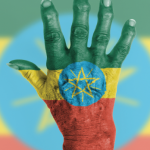She noted that countries in the European Union have received a much higher percentage of the COVID-19 vaccines they requested than have countries in the African Union. As of October 2021, Africa has fully vaccinated just 6% of its population, but rates are lower than that in some African countries.1 Moreover, adding up the single-dose vaccinations given out by 18 different African nations, the total is less than the number of booster shots that North America, Europe and Israel have already administered.
According to Dr. Alakija, Europe has reported a 60% increase in the death rate related to COVID-19. In contrast, the African Union has reported an 800% increase. However, she said these numbers may not fully represent the true level of inequity because the level of testing in Africa is so low, and many deaths due to COVID-19 have, therefore, probably not been counted.
Tackling Inequalities
As Dr. Alakija drew attention to these stark inequalities, she underscored the need to question existing power structures and ultimately change the total global health infrastructure to promote equity for all. “As a global health community, we have to find a way forward for health equity—not just in this crisis, but also going forward. … This is a call to action and a challenge for you to see what you can do, even in your own field,” she said.
Dr. Alakija urged listeners to be deliberate about inclusivity, arguing that more inclusivity is needed on a worldwide scale. It is only by holding dialogues with those from the Global South (i.e., Latin America, Asia, Africa and Oceania) and hearing from them about their most pressing issues that we can begin to make substantive progress on these problems.
Individuals and small institutions should also make inclusivity a priority. “Be deliberate about inviting in the voices of those that you’ve previously not heard,” said Dr. Alakija.
Dr. Alakija also urged listeners to get involved in the geopolitical space. She noted how important it is to have people who can speak knowledgeably about both geopolitics and medicine, people who can serve as translators across domains. “We need to be more connected to the practicalities of what we do,” she said.
Another key is self-education. Dr. Alakija urged listeners to get outside their comfort zone and educate themselves on the inequities and inequalities that exist worldwide.
From there, Dr. Alakija recommended banding together, forming coalitions with people who share concerns and goals related to justice and equity. “Once you have a critical mass of people pushing forward, it becomes a lot easier,” she said. “Find courage because it really needs courage to address global health equity.”



